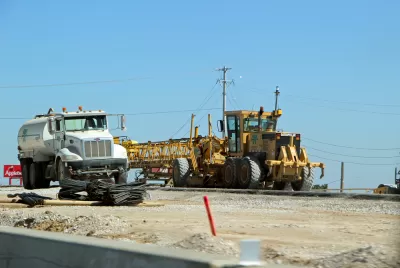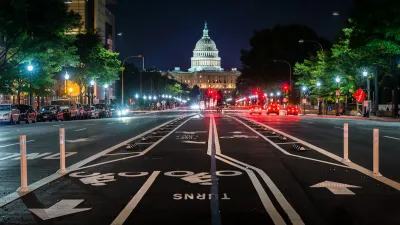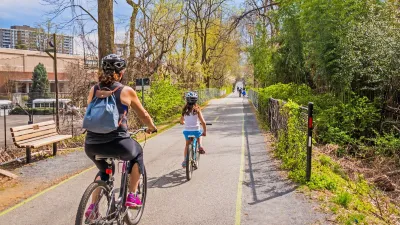The majority of federal infrastructure funding is not tied to federal requirements, letting states set their own targets for road safety and improvements.

"The lengths the U.S. Transportation Department can go in shaping how states spend money has emerged as a flash point in the implementation of the [federal] infrastructure package," writes Ian Duncan in The Washington Post.
When the highway administration conducted its most recent performance reviews, covering 2019 and 2020, it often graded states as having made progress even when they performed worse than in previous years. The most recent disclosures show that four states hit all 11 of their targets, yet no state made actual improvements across the board. In reality, 34 states slid backward on at least half of the measures that federal officials track.
"The law does not require that money go to repairing aging or dangerous infrastructure, leaving those spending decisions to state transportation leaders." According to the article, "The federal government has little direct control over what states build, handing over money in the form of huge grants."
While some programs have stricter requirements (for example, "states where cyclists and pedestrians account for more than 15 percent of road deaths will be required to dedicate funding to their safety"), the bulk of federal funding is not attached to specific targets.
While the Federal Highway Administration has defended the system, "The U.S. Transportation Department, however, recently indicated it intends to revisit the approach. A road safety plan that Buttigieg released early this year says the department will consider revising its rules to 'ensure that State safety performance targets demonstrate constant or improved performance for each safety performance measure.'"
FULL STORY: Under federal rules, ‘significant progress’ on infrastructure can mean more road deaths and decrepit bridges

Maui's Vacation Rental Debate Turns Ugly
Verbal attacks, misinformation campaigns and fistfights plague a high-stakes debate to convert thousands of vacation rentals into long-term housing.

Planetizen Federal Action Tracker
A weekly monitor of how Trump’s orders and actions are impacting planners and planning in America.

San Francisco Suspends Traffic Calming Amidst Record Deaths
Citing “a challenging fiscal landscape,” the city will cease the program on the heels of 42 traffic deaths, including 24 pedestrians.

Defunct Pittsburgh Power Plant to Become Residential Tower
A decommissioned steam heat plant will be redeveloped into almost 100 affordable housing units.

Trump Prompts Restructuring of Transportation Research Board in “Unprecedented Overreach”
The TRB has eliminated more than half of its committees including those focused on climate, equity, and cities.

Amtrak Rolls Out New Orleans to Alabama “Mardi Gras” Train
The new service will operate morning and evening departures between Mobile and New Orleans.
Urban Design for Planners 1: Software Tools
This six-course series explores essential urban design concepts using open source software and equips planners with the tools they need to participate fully in the urban design process.
Planning for Universal Design
Learn the tools for implementing Universal Design in planning regulations.
Heyer Gruel & Associates PA
JM Goldson LLC
Custer County Colorado
City of Camden Redevelopment Agency
City of Astoria
Transportation Research & Education Center (TREC) at Portland State University
Jefferson Parish Government
Camden Redevelopment Agency
City of Claremont





























